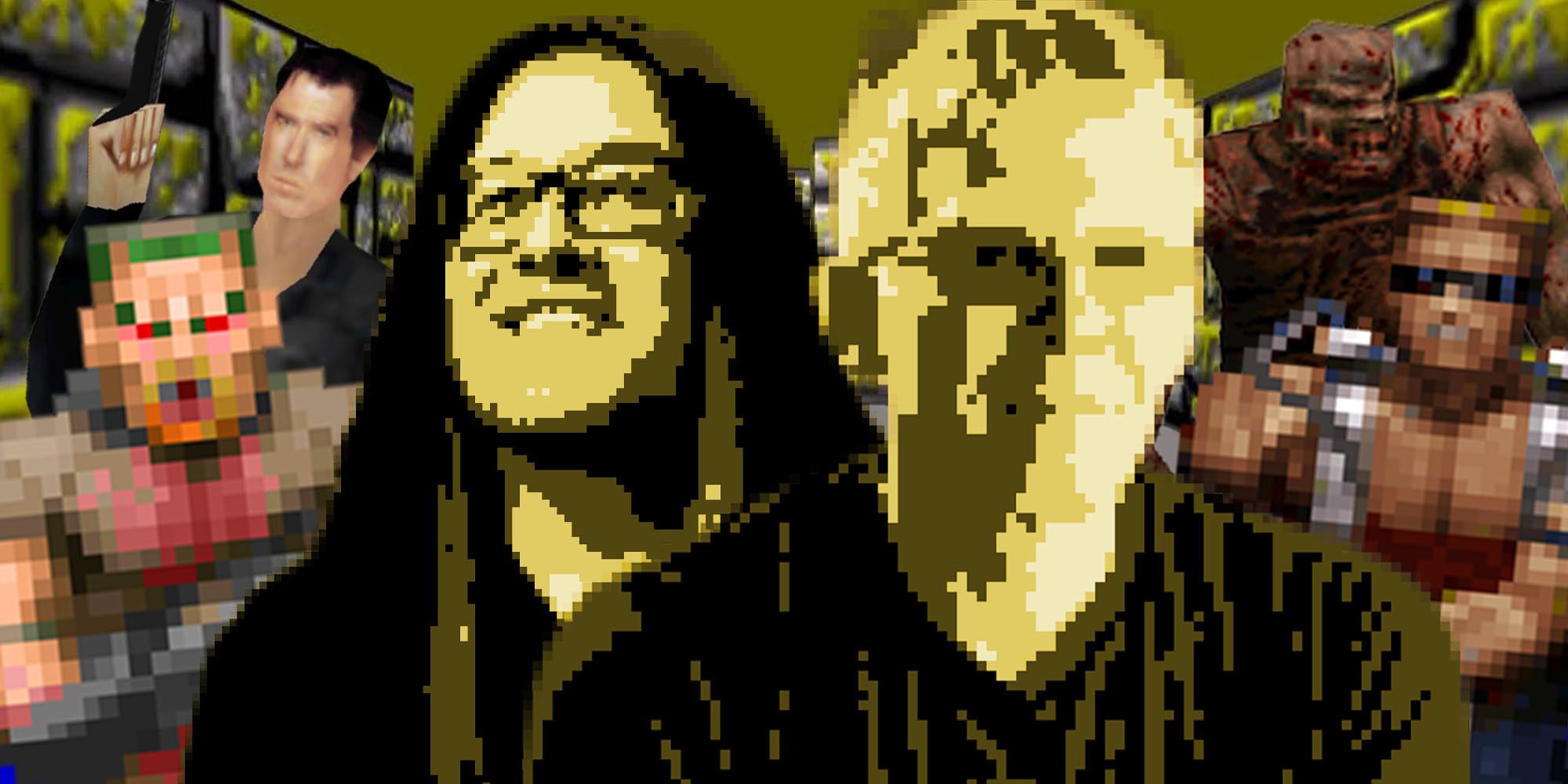My biggest quibble with FPS: First-Person Shooter is that it doesn't live up to the claim in its tagline, included in its logo and in the film itself. Its creators have dubbed it "The Definitive FPS Documentary." A valuable resource? Sure. But not so much if you’re interested in learning much about anything that's happened in the shooter space after, say, 2004. And lacking much to say about the genre’s last two decades, it can’t say much definitively about the current state of the genre.
So, it’s not the definitive doc per se, but at 4.5 hours, I would certainly believe that this is the longest film produced with this level of research. And with most of the key players from id Software’s golden days — John Romero, John Carmack, Adrian Carmack, Tom Hall, American McGee, Sandy Petersen, and Tim Willits, plus Masters of Doom author David Kushner — appearing for interviews, it certainly has a claim to being the most thorough exploration of that fertile creative period ever committed to an SD card. It covers id Software’s early contributions with an impressive degree of detail, getting tons of eyewitness accounts of the creation of Commander Keen, Wolfenstein 3D, Doom, Doom 2, Quake, Quake 2, and Quake 3 Arena from the developers that pioneered the genre’s earliest mainstream hits.
But that emphasis on id reveals the documentary’s chief flaw. It only really cares about the ‘90s. First-Person Shooter clocks in at a whopping 271 minutes, and three-fourths of that runtime is devoted to the period from 1990-2000. Everything else is treated as an afterthought, and it would be better, more focused, and more easily digestible if it committed to focusing on that period.
If you’re interested in the nitty-gritty details of that era, as directors Christopher Stratton and David L Craddock obviously are, it would be hard to find a better resource. They lavish attention on ‘90s-defining titles like System Shock, Duke Nukem 3D, and Half-Life, but they also devote segments to less canonical games like Descent, Rise of the Triad, and Starsiege: Tribes. As a fan of the genre, seeing games that have been largely forgotten get that kind of love was exciting, but when I hit the three hour mark and the doc hadn't yet reached the early 2000s, I started to realize that there just wasn’t enough runtime left to do justice to the genre’s last 20 years. Call of Duty, the most significant FPS series of the last two decades, gets about five minutes devoted to it, in a segment more generally covering military shooters. Overwatch is mentioned only in passing. Ditto Destiny. These games have been massively influential. You may not like them, but they’re more consequential to the moment video games find themselves in now than Super 3D Noah's Ark or Chex Quest (which share a dedicated segment). It feels like Craddock, Stratton, and Richard Moss (who shares a writing credit with Craddock) began writing happy birthday on a card, made “HAPP” as big as possible, then had to squeeze “y birthday” in with only an inch left.
That contributes to the documentary’s overall feeling of structurelessness. After an animated credits sequence, the doc cuts to a wall of game boxes,t hen zooms in on the art for 1973’s Maze War, generally believed to be the first FPS ever created, and repeats this move each time it switches to a new game. The doc has interviews with two of that game's creators, Dave Lebling and Greg Thompson, which is a wonderful resource, but its lack of a narrator or host means that it largely lacks context. It assumes that its audience knows why first-person shooters are important, so it doesn't bother making the case. And, when most of the next four-and-a-half hours will consist of moving through detailed discussions of games one by one, you're left wishing there was some kind of thesis tying all of this information together.
There isn’t, though, unless you count “these are all games from the same genre” as a thesis. Part of this may be a result of First-Person Shooter’s strange form. It’s far longer than most movies and, had it been produced as a miniseries with episodes devoted to different periods of FPS history, it would likely have been more coherent. As it is, I watched it all in one go and the lack of an overarching idea really started to grate on me by the end. Instead of each segment contributing to a broader argument, each new section just feels like it’s telling you new, unrelated information about another shooter. It’s more a well-researched visual encyclopedia than a compelling non-fiction novel.
The lack of an authorial thesis prevents First-Person Shooter from expressing a point of view on anything. It alludes to some of the grotesque realities of the games industry in the ‘90s (many of which persist until today), but doesn’t really explore them. Gears of War designer Cliff Bleszinski talks about the toll that working 16-hour days on Unreal took on him, but the documentary has nothing to say about crunch. Shadow Warrior is referred to as “culturally insensitive” by PC Gamer’s global editor-in-chief Evan Lahti during an interview, but there’s no added context. We see booth babes in an E3 picture, and the doc includes a shot of Elexis Sinclaire from SiN Episodes standing in a pond in a skimpy bikini with jiggle physics working overtime. All of this represents cultural rot that dedicated workers in the games industry have made strides to change over the years, but the doc’s celebrative tone and lack of voice makes it all feel neutral at best.
That may just be the product of Stratton and Craddock both being first-time feature directors. There’s no one way to make a documentary and it can be tough to know what approach works best for a subject. Regardless of my issues with the way the film is presented, it’s a treasure trove of information if you’re interested in the genre’s early days. First-Person Shooter assembles the genre’s Avengers, and that's a worthy achievement. I just wish it had a clearer mission.
FPS: First-Person Shooter is available to order through August 1st at fpsdoc.com.



